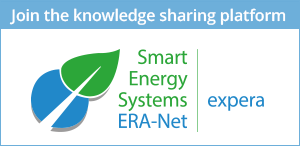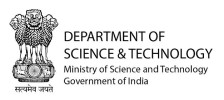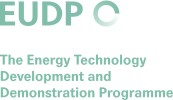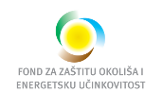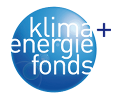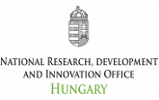The European Joint Programming Platform ERA-Net Smart Energy Systems has set a goal that beyond the funding of transnational RDD projects, it will accelerate the development of transnational innovation ecosystems by initiating a Transnational Validation Network with existing and future Living Labs and Testbeds, allowing innovative companies / developers to test and validate their technological or service solutions in real-life settings.
In the context of JPP ERA-Net SES, Living Labs are considered as user-centred and open innovation ecosystems often operating in a territorial context (e.g. city, region), integrating concurrent research and innovation processes (co-creation), potentially relying on a public-private-people partnership. Living Labs are expected to support the energy system developers with validation capabilities related to customer/user value of a new service and/or business model design, among others. Furthermore, Testbeds are understood as technological testing, piloting and demo-infrastructures which are connected to a real-life energy system. Testbeds are expected to support the energy system developers with validation capabilities related to technical feasibility and/or interoperability of new technological innovations, among others.
The partners of the Validation Network and their offerings are promoted through the communication channels of the JPP ERA-Net SES. The Living Labs and Testbeds may seek to be partners in the project consortia that will apply for financing from the programme or offer services to the projects. Find more information about how to get involved
hereCurrent partners of Living Lab and Testbed Network
We are pleased to announce the first of our selected living lab and testbed partners. Click on a logo for more details.
Partner
Name and Mission
Location
100% renewable district heating LeibnitzThe district heat supply of the city and its surroundings will be massively expanded in future. The future system shall be supplied with 100% renewable energy from biomass and waste heat.
Leibnitz, Austria
About 100% renewable district heating Leibnitz
In co-operation of two different district heating (DH) operators the DH supply of the city of Leibnitz and the surrounding municipalities will be massively expanded over the next few years. The future DH system shall be supplied with 100% renewable energy from biomass and industrial waste heat. The central approach to achieve this, is to merge the two heating networks in order to enable the mutual exchange of heat to ensure an efficient, resource-saving supply. Particularly in winter, the northern operator (NO) provides heat from biomass to the southern operator (SO) on weekends when the TKV is out of operation, minimizing the gas boiler operation of the SO. In summer, the industrial excess heat, which cannot be utilized by the SO is distributed to the NO, which saves biomass feedstock. This operation strategy shall be embedded within an overall smart control system considering additional measures.
Responsible organisation: AEE - Institute for Sustainable Technologies
639 KWh Energy Storage TestbedYesilIrmak DSO Enegy Storage Testbed encapsulates a complete energy storage solution in a space-efficient high-performance unit.
Yesilirmak DSO Headquarter, Turkey
About 639 KWh Energy Storage Testbed
YesilIrmak DSO Enegy Storage Testbed encapsulates a complete energy storage solution in a space-efficient high performance unit. It is comprised of the latest lithium-ion battery technology, bidirectional power conversion systems, control platform and all additional electrical equipment in an all-in-one, plug and play type solution.
Power quality support provided by Yesilirmak Energy Storage Testbed in different ways with the aim to prevent or counteract events of low power quality. Load Shifting applications, e-Mobility charging by RES, PV panel and all the other zero emission solutions will be implemented at this testbed site.
Responsible organisation: Yedas
AMETS - Atlantic Marine Energy Test SiteThe Atlantic Marine Energy Test Site is being developed by Sustainable Energy Authority of Ireland (SEAI) to facilitate testing of full scale offshore renewable energy in an open ocean environment.
Co. Mayo, Ireland
About AMETS - Atlantic Marine Energy Test Site
The Atlantic Marine Energy Test Site (AMETS) is being developed by Sustainable Energy Authority of Ireland (SEAI) to facilitate testing of full scale offshore renewable energy in an open ocean environment.
AMETS will be located off Annagh Head, west of Belmullet in County Mayo and will be connected to the national grid.
The test site is an integral component of Ireland’s Offshore Renewable Energy Strategy and is being developed in accordance with the national Offshore Renewable Energy Development Plan (OREDP).
The site will provide two separate test locations at various depths of water to allow for a range of devices to be tested. It is envisaged that the test site will provide a grid connected national test facility, to which full scale devices could be coupled during their final stages of pre-commercial development.
Responsible organisation: Sustainable Energy Authority of Ireland
ARENA INNOVATIONARENA INNOVATION offers digital solutions for planning and simulating circular economy. The Living Lab has expertise in technologies for sector coupling with focus on Fuel Cells and Hydrogen.
Stuttgart, Germany
About ARENA INNOVATION
ARENA INNOVATION has successfully tested the Be-Circle IT Tool SW (http://be-circle.com/) for planning and simulating a circular economy on a legal contractual basis. As a result, ARENA INNOVATION - Hans Marius Schuster has been nominated as a „2020 Mission Innovation Champion“, representing Germany within the Innovation Challenge IC8: Renewable and Clean Hydrogen (www.michampions.net/meet-the-champions). ARENA INNOVATION is also member in various German national and international fuel cells and hydrogen clusters and can hence engage groups of customers/users open to new services or technologies from this pool. ARENA INNOVATION pans itself to establish Living Labs and Competence Centers along the Danube river basin in Europe and digitally interconnect these together (http://www.interreg-danube.eu/calls/project-ideas/project-idea-deatils/2954).
Responsible organisation: ARENA INNOVATION
AurovilleAuroville is a township that generates 30% more renewable energy (PV and off-site wind) than it consumes. The town develops its own underground electricity grid. A next step is to add grid-balancing.
Auroville, Tamil Nadu, India
About Auroville
Auroville is a universal township in making. Founded in 1968 it is endorsed by UNESCO and the Government of India, it offers a unique field for developing innovative solutions for some of the pressing needs of our time. It is home to multi-national and multi-cultural population from about 50 countries. Auroville also has a strong background in sustainability related area, innovation and appropriate technology application in the context of a developing nation. Auroville has been a pioneer in the deployment of renewable energy technologies. With the combined renewable energy generation of on-site solar PV systems and the off-site wind turbines, it generates about 30% more renewable energy than it consumes. Since 2014 Auroville has been developing its own underground electricity grid. A next logical step is to scale up distributed renewable energy generation and to add grid-balancing technologies.
Responsible organisation: Auroville Consulting
Brightmerge Ketura Living LabBrightmerge together with partners are developing the next generation living lab testbed for the post-COVID-19 residential, commercial, industrial, and retail community.
Ketura, Israel
About Brightmerge Ketura Living Lab
Brightmerge together with partners are developing the next generation living lab testbed for the post covid 19 residential, commercial, industrial and retail community.
The goal is to create a place where all types of technologies can be tested including electric vehicle charging, energy storage, various control systems, pricing models and more.
Responsible organisation: BRIGHTMERGE
Campus Lichtwiese TU DarmstadtTU Darmstadt Campus Lichtwiese is a university campus, serving as a living lab for community multi-energy systems.
Darmstadt, Germany
About Campus Lichtwiese TU Darmstadt
TU Darmstadt Campus Lichtwiese is a university campus, serving as a living lab for community multi-energy systems.
The Technical University Darmstadt has two campuses, one in mid-town and one at the city boundary, called campus Lichtwiese. At campus Lichtwiese, the university operates several gas CHP plants, supplying electricity and heat to a district heating grid that connects both campuses. The energy system is supplemented by a cold grid supplying laboratories' cold demand at approx. 6°C. Both compression and absorption chillers are available. Moreover, a scaled industrial test facility for sector integration in industry, a heat recovery computing center, and a 1 MW CCS test facility is integrated into the campus. The energy system features a fully digitized real-time monitoring system of all relevant energy parameters, including detailed data about the demand side.
Responsible organisation: Energy Information Network and Systems (EINS)
Campus of the University of ParmaOur Living Lab at the University of Parma is a 77-hectare campus area welcoming more than ten thousand persons every day. About thirty buildings fed by two parallel heating and cooling networks.
Parma, Italy
About Campus of the University of Parma
The Campus of the University of Parma is a 77-hectare area in the south of the city hosting scientific departments, modern and well-equipped lecture halls, comfortable study areas, technologically advanced laboratories, and a Technopole - as well as several sports facilities, a conference center, and a canteen.
About thirty buildings fed by two parallel heating and cooling networks welcome every day more than ten thousand persons, among students, faculty, personnel and sportspersons. Heat is produced by five boilers for a total power of about 18 MW and distributed trough water leaving at 80 °C and returning at 60 °C, while cooling water leaves at 7 °C and returns at 12 °C and it is produced by three electric chillers (total power 7 MW). Electricity is withdrawn from the city network and self-produced by PV panels (more than 800 kW of peak power installed) and then distributed through two ring-type networks at 15 kV.
Responsible organisation: University of Parma
CELL - Collaborative Energy Living LabThe Collaborative Energy Living Lab (CELL) drives innovation for cyber-physical energy systems in Switzerland. It provides a testbed for digital energy applications and power systems integration.
Horw, Lucerne, Switzerland
About CELL - Collaborative Energy Living Lab
The Collaborative Energy Living Lab (CELL) drives innovation for cyber-physical energy systems in Switzerland. It provides a testbed for digital energy applications and power systems integration. In CELL, we develop and validate modern solutions for clean energy systems. CELL combines traditional power systems and microgrids competence with applied research in information and communication technology.
CELL has grown out of the successful Living Lab ‘iHomeLab’ on the Hochschule Luzern (HSLU) campus. The CELL concept is a modular, scalable living lab that combines facilities, expertise and partnerships across the university footprint.
CELL uses the Campus Ecosystem including an innovation park and other existing communities, e.g. https://www.am-aawasser.ch/, as real-life living labs for developing, testing and showcasing advanced technology and systems. CELL offers modular services to business, research and community partners.
Responsible organisation: Lucerne University of Applied Sciences and Arts
CO2 separation plant for CO2 conversion into methaneA plant that focuses on CO2 separation and production of synthetic CH4 from H2 and CO2.
Linz, Austria
About CO2 separation plant for CO2 conversion into methane
Carbon Capture and Utilization technology represents a variety of processes, where carbon species (e.g. CO2, CO) are utilized as feedstock to produce valuable carbon-based products such as methanol or methane (CH4). The substitution of fossil feedstocks with “renewable” carbon-based products is a feasible strategy to close the carbon cycle and reduce CO2 emissions of energy intensive industries. For this reason, the plant focuses on CO2 separation to offer a feedstock to produce synthetic CH4 from H2 and CO2. The CO2 separation technology (amine-scrubbing technology) can be connected to different conversion technologies like bioelectrochemical methanation or geo-methanation. CO2-rich off-gas will be available from the steel industry. The separation unit can be fed with CO2 rich off-gas from the power plant or directly with process off-gases. The capacity of the separation unit is about 800kg/day CO2.
Responsible organisation: K1-MET GmbH
DigitalEnergyTwinOur living lab is linked to real industrial production (energy demand and supply), that is the testbed for the development of the digital energy twin.
Styria, Austria
About DigitalEnergyTwin
This living lab is linked to real industrial production (energy demand and supply), that is the testbed for the development of the digital energy twin. Models are developed based on physics and data driven based setup for demand and supply utilities plus the focus on renewable and efficient technologies. The core is the simplification of the models in order to integrate them in the digital twn methodology. By this, issues as data management and security are addressed and finally applied for the optimisation of the system. The real testbed allows the development, but more important the validation and verification of the setup. Results are used for innovative visualisation.
Responsible organisation: AEE - Institute for Sustainable Technologies
domX CommunityDomX Community offers a cost-effective solution for the automation of legacy gas-based boilers used for space heating and hot water preparation, bringing several advantages to end-consumers.
Thessaloniki, Greece
About domX Community
DomX offers a cost-effective solution for the automation of legacy gas-based boilers used for space heating and hot water preparation. The system brings several advantages to end-consumers, including: improved heating efficiency (up to 35%), smart and remote control, improved comfort and direct participation in flexibility aggregation services for natural gas.
The domX Community consists of 50 households located in the city of Thessaloniki, Greece and equipped with natural gas boilers. All legacy boilers are attached with the smart heating controller, the smartphone application and the cloud energy management services of the company. Advanced energy services are also offered in collaboration with natural gas suppliers, including demand forecasting and management.
Responsible organisation: domX
DyNaLab (Dynamic Nacelle Testing Laboratory)The Fraunhofer IWES offers with the Dynamic Nacelle Testing Laboratory, a full-scale technological test stand for complete nacelles and its subsystems in the power output range from 2 to 8 MW.
Bremerhaven, Germany
About DyNaLab (Dynamic Nacelle Testing Laboratory)
The Fraunhofer IWES offers with the Dynamic Nacelle Testing Laboratory (DyNalab), a full scale technological test stand for complete nacelles and its subsystems in the power output range from 2 to 8 MW. The DyNalab provides a realistic testing environment in the multi-megawatt field for all manufacturers of wind energy turbines through facilitating informative laboratory testing in the evaluation and optimization of established and future turbine concepts. Field trials can be simulated under realistic conditions in the laboratory.
Responsible organisation: Fraunhofer IWES
ENEA_PowerLabThe lab consists of a LV grid constituted by AC, DC & hybrid microgrids able to emulate different energetic scenarios and validate topological solutions, control and protection strategies and devices.
Italy
About ENEA_PowerLab
The ENEA_PowerLab Living Lab/Testbed consists of a LV grid constituted by AC, DC and hybrid microgrids able to emulate different energetic scenarios and validate topological solutions, control and protection strategies and devices. Several generators, storage systems (LiFePO4 and flow batteries, supercapacitors banks) and regenerative loads also including real and/or emulated renewables (PV, wind, FC) and DER sources realize the infrastructure. Particular attention is dedicated to DC/AC and DC/DC interfaces to the microgrid buses: 400V AC, 400V DC, 800V DC. Furthermore, groups of users (consumers and prosumers) are integrated in the Living Lab and their energetic needs and requirements are acquired to validate advanced management strategies in Hardware in The Loop environment. A charging station is going to complete the 800V DC microgrid.
Responsible organisation: ENEA Smart Grid and Energy Network Lab
Energy Living LabThe Energy Living Lab has access to a technical infrastructure of 300 households testing smart devices. It provides applied research and consultancy for the development of RE and energy efficiency.
Delémont, Switzerland
About Energy Living Lab
The Energy Living Lab is member of the European Network of Living Labs, board member of this network. In charge of the Taskforce Energy & Environment, advising the Joint Research Center of the European Commission in launching two living labs. The Energy Living Lab has access to a technical infrastructure from the technopole Energypolis (EPFL, HES-SO), 300 households testing smart devices. It has developed the "Living Lab Integrative Process" (Mastelic, 2019) in order to co-design products, services, programs together with the key stakeholders. It proposes applied researches and consultancy for the development of RE and energy efficiency programs. A non-profit association has also been developed to support new Energy Living Labs through a social franchising model and ENoLL labeling.
Responsible organisation: University of Applied Sciences Western Switzerland
Energy Network Technology LaboratoryThe Energy Network Technology laboratory is located at the Montanuniversity of Leoben and aims to be a demonstration, innovation, and education centre for industrial energy systems.
Montanuniversität Leoben, Austria
About Energy Network Technology Laboratory
The Energy Network Technology laboratory is located at the Montanuniversity of Leoben and aims to be a demonstration, innovation, and education centre for industrial energy systems. Overall, the laboratory is based on an innovative “Power Hardware in the Loop (PHiL)” approach, where new generation and consumption technologies as well as flexible elements (storage, DSM technologies, etc) are combined to form an integrated system.
This holistic approach allows to analyse and optimise existing energy system technologies, as well as investigations and developments of optimal integration strategies of technologies into the energy system and hybrid energy carrier design approaches. In addition, the PHiL approach allows a real time interaction of the individual components and results in optimisation potentials on the level of technologies, system integration and flexible operational management, without being tied to the same location.
Responsible organisation: Montanuniversität Leoben
EnergyLab NordhavnEnergyLab Nordhavn is an urban innovation hub and epicenter for the energy technologies of tomorrow. It builds on Copenhagen’s power grid and district heating network.
Copenhagen, Denmark
About EnergyLab Nordhavn
EnergyLab Nordhavn is an urban innovation hub and epicenter for the energy technologies of tomorrow. The hub builds on Copenhagen’s power grid and district heating network, but also ventures far into the built environment and private dwellings to co-model and co-simulate these in order to unlock their flexibility potential. The living lab of EnergyLab Nordhavn has a unique agreement with local residents on smart metering data access from private homes, which can be combined with other accessible data on renewable energy production, local transformer stations, Nordpool prices and much more. The EnergyLab Nordhavn partners have developed and tested a number of solutions in Nordhavn that can be replicated and scaled.
Responsible organisation: Technical University of Denmark
Energysymbiosis Boden - Plug And PlayThe municipality of Boden has established a collaboration with the Swedish Energy Agency. The purpose is to promote holistic approach to energy use, and to promote the future development of industry.
The region of Norrbotten, the municipality of Boden, Sweden
About Energysymbiosis Boden - Plug And Play
The municipality of Boden has established a collaboration with the Swedish Energy Agency. The purpose is to promote a holistic approach to energy use, and to promote the future development of industry in primarily IT-related industries and food production.
Actors in the region of Boden will jointly implement measures that lead to resource-efficient energy use, with an increased share of renewable energy and create more circular flows of materials and energy within industrial clusters. It also includes promoting a fossil-independent vehicle fleet as well as an increased self-sufficiency of both fuel and food in Norrbotten. The collaboration is part of a comprehensive initiative supported by the Swedish Energy Agency's work on sectoral strategies for energy efficiency. The strategy node in Boden contributes by developing new scalable innovations and solutions that can lead to resource-efficient energy use within the industry.
Responsible organisation: Boden Business Agency
ERIGrid 2.0 Smart Energy Systems Research Infrastructure Network with technical laboratoriesERIGrid 2.0 is a European research infrastructure which provides free-access to laboratories for validating smart energy networks with the electric power grid as the main backbone.
Europe (Austria, Belgium, Cyprus, Denmark, Finland, France, Germany, Greece, Italy, Netherlands, Norway, Spain, UK)
About ERIGrid 2.0 Smart Energy Systems Research Infrastructure Network with technical laboratories
ERIGrid 2.0 is a European research infrastructure which provides free-access to laboratories for validating smart energy networks with the electric power grid as the main backbone. The project involves 20 partners from 13 European countries whereas 21 top-class smart grid, smart energy systems, and DER laboratories and 8 virtual facilities are being made freely accessible.
The project invites all interested engineers involved in the domains of power system testing, smart grids and energy systems to receive free funding to access the best laboratories of Europe and perform their own experimental research.
Responsible organisation: AIT Austrian Institute of Technology
Glava Energy CenterGEC assists innovators in developing and testing new innovations in solar energy and energy systems. In GEC innovation process the time from idea to first test concept is normally maximum 6 months.
Sweden
About Glava Energy Center
GEC assists innovators in developing and testing new innovations in solar energy and energy systems. In GEC innovation process the time from idea to first test concept is normally maximum 6 months. GEC test and innovation park consists of approximately 60 different PV systems of totally 250kW and several battery systems, including micro grids in both DC and AC. GEC has a wide network of partners including several universities, that can be potential partners in joint projects. With a history from participation in several ERA-Net and other projects, GEC is an experienced project partner.
Responsible organisation: Glava Energy Center
GotlandGotland is the Energy Pilot of Sweden. As such we have the task of accelerating the transition into a renewable energy system on the island, faster than the national climate goals of Sweden.
Gotland, Sweden
About Gotland
Gotland is the Energy Pilot of Sweden. As such we have the task of accelerating the transition into a renewable energy system on the island, faster than the national climate goals of Sweden. Thereby the entire island today is a testbed. One example of this is the project Smartroad Gotland, implementing/testing a unique solution for seamless charging of vehicles while travelling on the road. Another is the establishment of Gotland Industrial Symbiosis Park, being a circular economy-based hub where companies will interact both technically and socially in a circular fashion. The entire area around the Park, including airport, resort and residential area, will also be connected by hydrogen storage solutions, common water facilities and waste solutions.
Energicentrum Gotland is in the center of the work on the island with the task of coordinating, enabling, driving and communicating the energy transition on Gotland.
Responsible organisation: Energicentrum Gotland (as part of Region Gotland)
Green Energy LabGreen Energy Lab is Austria’s largest innovation laboratory for green energy. It comprises of the test markets Vienna, Lower Austria, Burgenland, and Styria - together about 5 million citizens.
The Regions of Vienna, Styria, Burgenland and Lower Austria, Austria
About Green Energy Lab
Green Energy Lab is Austria’s largest innovation laboratory for green energy. It comprises the test markets Vienna, Lower Austria, Burgenland, and Styria — all in all about five million citizens. The research initiative operates an innovation lab to develop and test innovative products, applications and services in the field of integrated sustainable energy systems.
More than 200 partners from research, industry and the public sector join the energy suppliers of these four Austrian provinces, forming a dynamic innovation platform with a strong drive to get novel solutions to the market as quickly and efficiently as possible.
Green Energy Lab’s direct access to the core market of energy suppliers allows for new developments to be tested immediately and on a large scale using an exhaustive innovation infrastructure encompassing a range of open Innovation services, testbeds, shared knowledge and more.
Responsible organisation: Green Energy Lab
Green Energy park - Smart Multi Energy LabGreen Energy Park is a joint project of the Free University of Brussels, the University Hospital Brussels and Flux50. It includes the development of a research campus in the Research Park of Zellik.
Green Energy Park, Zellik, Belgium
About Green Energy park - Smart Multi Energy Lab
The Green Energy Park (GEP) is a joint project of the Free University of Brussels (VUB), the University Hospital Brussels (UZ Brussel), Flux50 (cluster) and includes the development and operation of a research campus in the Research Park of Zellik with a focus on four research areas, one of them being ‘Energy and mobility transition’.
GEP wants to be a large-scale testing ground, expertise and training center to bridge the gap between research, innovation, realization and exploitation.
The first phase of the living lab involves the development of the Smart Village Lab. The Lab allows to test and demonstrate technology at the level of a distribution network, where interaction between a smart home and a smart neighborhood can be tested (1MW DSO, 160kW per system; neighborhood batteries 2*350kWh).
The living lab on energy and mobility addresses integration of products and services that want to grow from TRL 5-6 to TRL 8-9.
Responsible organisation: Flux50
Grid Singularity D3AGrid Singularity is a Berlin-based technology company engineering d3a.io, open source software that simulates and operates custom energy exchanges, creating local marketplaces.
Berlin, Germany
About Grid Singularity D3A
Grid Singularity is a Berlin-based technology company engineering d3a.io, open source software that simulates and operates custom energy exchanges, creating local marketplaces. Our mission is to act as an enabler of new, green energy business models, fostering virtual collaboration and knowledge sharing via our Canary Test Network. With our software you create a digital twin of an actual grid which acts as a technical testbed for further grid setup optimization (this is a free service). Grid operators can also test different grid fee models and other innovations. Open source software and promotion of tolerance, diversity and care for the environment are at the core of our beliefs.
Responsible organisation: Grid Singularity
Halden Living LabHalden Living Lab focuses its work on areas of smart and renewable energy systems, emissions reduction, smart water, user centered health care and other services based on digitalization.
Halden, Norway
About Halden Living Lab
The digitalization of society is about fundamental changes in the way we work, how public services are offered and performed, and how social media influence our behavior and communication with others. In a few years, today's operating and service model in the municipalities in Norway will not be sustainable. The society is totally dependent on service innovation and significant change in services, using new and innovative digital solutions and preparing the ground for giving different types of data value in new ways. Halden Living Lab (HLL) is the new major research effort on digital transformation of society, where citizen involvement and sustainability is an integral part of an open ecosystem for collaboration, innovation and competence development. HLL focuses its work on areas of smart and renewable energy systems, emissions reduction, smart water, user centered health care and other services based on digitalization.
Responsible organisation: Smart Innovation Norway
Hammarby Sjöstad 2.0ElectriCITY is a citizenship-driven innovation platform formed in 2014. The organization, operating in Hammarby Sjöstad in Stockholm, aims to create the most climate-friendly district in Sweden.
Hammarby Sjöstad, Stockholm, Sweden
About Hammarby Sjöstad 2.0
ElectriCITY is a citizenship-driven innovation platform that was formed in 2014. The organization, operating in Hammarby Sjöstad in Stockholm, aims to create the most climate-friendly district in Sweden.
The operations of ElectriCITY are run under the overall project name Hammarby Sjöstad 2.0. Within the organization there are about 30 sustainability and environmental projects, several of which take place in collaboration with companies, research organizations and universities.
Specifically, it is about transforming the climate agreement from Paris into local energy and environmental measures through the introduction of smart and renewable energy, sustainable transport, energy efficient houses, electric buses and electric cars. Hammarby Sjöstad works as a testbed and demo for new sustainable solutions, copied for other districts and municipalities, both in Sweden and abroad. We want to reach the Paris agreement by 2030.
Responsible organisation: ElectriCITY Innovation
ICSTMICSTM living lab focuses on building automation, multi-vector optimization of renewable generation with storage and microgrids management in energy islands (blocks of buildings).
Targoviste, Romania
About ICSTM
ICSTM building was designed based on NearZeroEnergy Building (nZEB) concepts to achieve highest energy efficiency levels for a building of this type. It integrates renewable energy generation (RES) and a building automation and control system (BACS). ICSTM is endowed with research specific technical installations and high-end research equipment for prototyping and analyses.
The building is powered by 100kWp PV, 30kWp wind and 26kWp solar thermal with storage in both stationary batteries and hot water.
The BACS is an industrial PLC system operating all the buildings' installations (Hot/Cold water generation, HVAC&R, lighting, alarm systems, a.o.), it monitors and measures loads and can automate scheduled based and temperature compensated scenarios.
This living lab is focused on building automation, multi-vector optimization of renewable generation with storage and microgrids management in energy islands (blocks of buildings).
Responsible organisation: Valahia University of Targoviste
INES MicrogridINES is a microgrid (PV, wind, electric mobility, CHP, electronic loads, battery systems, thermal storages, thermal loads) that can operate in island- and grid-connected mode.
Offenburg, Germany
About INES Microgrid
Microgrid (PV, Wind, electric mobility, CHP, electronic loads, several battery systems, thermal storages (hot + cold), thermal loads) that can operate in island mode and in grid-connected mode.
Research focus areas are:
* Grid-friendly operation (e.g. peak-shaving, provision of balancing power)
* Joint operation with other/neighboring microgrids
* Model-predictive control algorithms
* (Machine-learning based) prediction of generation and loads
* (Machine-learning based) energy system and component modeling
* Communication via SMGW
Responsible organisation: Offenburg University of Applied Sciences, Institute of Energy Systems Technology
Innovation Lab act4.energyAct4.energy is a living lab to promote innovation for the energy transition. Focal topics are the increase of PV-self consumption, sector coupling of power, heat and transport, and e-mobility.
Burgenland, Austria
About Innovation Lab act4.energy
Act4.energy is an innovation initiative and living lab to promote and facilitate projects and research for the energy transition. It builds and operates experimental environments and provides a framework for innovation in the energy and e-mobility sector. It supports research and development projects in development and testing of new products, solutions and services for the better utilization of renewable energy sources. Focal topics are the increase of PV-self consumption, sector coupling of power, heat and transport as well as the advancement of e-mobility.
Our goal is to provide possible solutions for the problem of volatile availability of renewable energy sources in a demonstration region that can be copied and applied elsewhere in the future. We want to increase praxis relevance of research projects, accelerate societal transformation processes and facilitate the breakthrough of renewable energy.
Responsible organisation: Energie Kompass GmbH
Intelligent networks in the municipalities of the Sassari province (Sardinia)Our Living Lab/Testbed consists of intelligent networks and their management systems that six municipalities in the province of Sassari have created.
Sassari, Italy
About Intelligent networks in the municipalities of the Sassari province (Sardinia)
The Living Lab/Testbed on which we want to operate, concerns the intelligent networks and their management systems that six municipalities in the province of Sassari have created. The self-production systems built by the municipalities all have the same configuration, and consist of an MV/LV transformation cabin to which all the production, consumption and storage systems owned by the municipality are connected. In this cabin are installed, in addition to the connection equipment, all the intelligent network management equipment and the V2G type electric vehicle charging columns.
Responsible organisation: Puggioni Carlo Giuseppe
IoT Microgrid Living Laboratory (IoT-MGLAB)The IoT-MGLab is a living laboratory ecosystem for future residential households with the development of new IoT-based infrastructures for a data intensive system and its interaction with end-users.
Aalborg, Denmark
About IoT Microgrid Living Laboratory (IoT-MGLAB)
The IoT-MGLab is a living laboratory conceived to test and demonstrate real-life community and residential microgrids. The platform is a smart house, which can be used as a demonstrator of DC or AC distribution electrical systems to test resiliency and energy efficiency, equipped with:
- Roof-top Photovoltaic systems (10 kWp)
- Permanent magnet wind turbine (5 kW)
- Lithium-Ion battery pack (5kWh)
- Methanol-based fuel cell system (5 kW)
- EV charger (up to 22kW)
- Appliances: washing machine, dryer, kitchen, microwave, oven and freezer - IoT-ready and all of them controlled with Zigbee-based smart plugs.
- Real-time control platform including energy management and operation systems with forecasting and optimization.
- Several communication protocols such as Wi-Fi, Zigbee, LoRA.
The lab has contributed with H2020 and ERA-Net projects, e.g. Flex-ChEV, VICINITY, ASSET.
Please refer to www.crom.et.aau.dk
Responsible organisation: Department of Energy Technology, Center for Research on Microgrids (CROM), Aalborg University
JRC Living Lab for testing digital energy solutionsThe living lab is a multi-stakeholder community at the Joint Research Centre of the European Commission, committed to improving the use of energy across the whole site.
Ispra, Italy
About JRC Living Lab for testing digital energy solutions
The living lab for testing digital energy solutions is a multi-stakeholder community at the Joint Research Centre of the European Commission located in Ispra (Italy) - 2,500 staff, and Petten (NL) - 250 staff, committed to improving the use of energy across the whole site. This is achieved through the combination of a successful staff engagement methodology and the deployment of smart energy innovative technologies. We bring together colleagues with an interest in energy in their work environment and external partners who have new technology to offer, with the objective to work out effective solutions for improved sustainability and better quality of life within the site.
Technology providers, selected from an open call, have the unique possibility to come and test their ideas on our site and use our exclusive facilities. JRC colleagues become active users who give feedback and help co-constructing real case solutions.
Responsible organisation: Joint Research Centre
KEZO Research CentreKEZO is a testing field for devices producing and storing heat, cold and electricity from RES as well as a testbed of software for management of generation and consumption of energy.
Jablonna, Poland
About KEZO Research Centre
The KEZO Research Centre is primarily a laboratory space for research and development work in the field of clean energy technologies. However, it also fulfils the function of a living laboratory and demonstration unit. All locally available renewable energy sources (sun, wind, biomass) are used here, waste heat (for electricity and cooling) is utilized; heat, cold and electricity are stored (experimental storage of thermal energy in the ground, in large water reservoirs and using PCM materials; battery storage technologies including redox flow battery).
KEZO is a testing field for devices producing and storing heat, cold and electricity from renewable energy sources (RES) as well as testbed of software for management of generation and consumption of energy.
The installed technologies not only play the roles of demonstrators of modern technologies and research objects, but also act as functional systems that supply the buildings of the centre with heat, cold and electricity.
Responsible organisation: The Szewalski Institute of Fluid-Flow Machinery Polish Academy of Sciences
KTH Live-In LabKTH Live-In Lab offers something as unique as full-scale testbeds with everything from apartments in building-exempt premises to a changeable and scalable infrastructure.
Stockholm, Sweden
About KTH Live-In Lab
KTH Live-In Lab offers something as unique as full-scale testbeds with everything from apartments in building-exempt premises to a changeable and scalable infrastructure. KTH Live-In Lab can match customer projects with researchers from relevant interest areas and create individual offers within the framework of each project. It also includes a database and a unique collaboration platform.
Responsible organisation: Royal Institute of Technology (KTH)
Lakeside LabsA Smart Grid Lab comprising of a photovoltaic system with buffer batteries, smart- and legacy appliances. The Lab can run in grid- and island mode and several smart home applications can be emulated.
Klagenfurt, Carinthia, Austria
About Lakeside Labs
- Smart Grid Lab comprising of a photovoltaic system with buffer batteries, smart- and legacy appliances. The Lab can run in grid- and island mode and several smart home applications can be emulated including e.g. load balancing.
- The Lab also comprises measurement equipment for photovoltaic cell characterization and grid/circuitry simulators for educational purposes.
- Wireless sensors/networks for energy- and condition monitoring on energy generation/transmission systems as well as with energy consumers.
- Drones for inspection of energy infrastructure including the use of swarms of drones
Responsible organisation: Lakeside Labs GmbH
LAMELLAMEL is a joint laboratory with L2EP/Université de Lille and EDF Lab. The lab provides Carmel, a software dedicated to the calculation of electromagnetic fields, and high performance computation.
Palaiseau, France
About LAMEL
LAMEL (Laboratoire de Modélisation du Matériel Electrique - Electrical Equipment Modelling Laboratory) is a joint laboratory between L2EP/Université de Lille and EDF Lab. It enables them to structure their collaboration around field calculations and to contribute to the development of the code_Carmel software (http://code-carmel.univ-lille1.fr/).
This laboratory gathers a large part of the members of the L2EP's Tools and Numerical Methods team and EDF R&D research engineers from the ERMES department. It has existed since 2006 and has been the subject of twenty PhD theses.
Responsible organisation: EDF R&D
Live-in SmartgridThe Live-in Smartgrid testbed constitutes an accelerator for smart-grid solutions by offering tests with end-users, quality data and collaboration between stakeholders.
Uppsala county with the university city of Uppsala which is the 4th largest city in Sweden.
About Live-in Smartgrid
The Live-in Smartgrid testbed constitutes an accelerator for smart-grid solutions by offering tests with end-users, quality data and collaboration between stakeholders. It started with a megawatt-sized installation of end-user flexibility in villas and has been extended with numerous pilot projects including car charging, cotton batteries in schools, reality tests of every kind of solar cells etc. Furthermore, hundreds of students from Uppsala University are annually engaged in energy-related projects.
The county of Uppland already suffers from capacity problems and Uppsala main city, being the global winner of WWF’s 2018 One Planet City Challenge, works hard to find and use all the new solutions we need in the future energy system.
Live-in Smartgrid seeks every opportunity to get real-life tests onsite in close contact with real users.
Responsible organisation: Sustainable Innovation
Manisa Industrial ParkManisa Industrial Park (MIP) provides electricity, natural gas, steam, hot water, water and wastewater infrastructure facilities to its more than 200 companies established on an area of 1100 Ha.
Manisa, Turkey
About Manisa Industrial Park
Manisa Industrial Park (MIP) is the second organized industrial zone established in Turkey, dated 1964. MIP has over 200 companies established on a total area of 1100 Ha, manufacturing mainly for the automotive and white goods sub-industries. MIP provides electricity, natural gas, steam, hot water, water and wastewater infrastructure facilities to its companies. It has a 162 MW natural gas co-generation power plant (operated by its subsidiary company MOSB Enerji A.S.) and a 15 MW biomass power plant (operated by its subsidiary company MOSBIO A.S.).
MIP has two main distribution centers, 2x160 MVA and 2x100 MVA capacity. MIP provides approximately 600 MW energy supply capacity, with an approximate use of 200 MW monthly.
MIP is currently in the process of exploring new technologies in order to increase efficiency as well as the contribution of renewable energy in total energy used by its manufacturers.
Responsible organisation: Manisa Industrial Park
Marine Renewable Energy Lab (MaRELab)Marine Renewable Energy Lab (MaRELab) consists of an inshore/offshore infrastructure for full and model-scale prototypes in a real environment of marine renewable energy devices.
Naples, Italy
About Marine Renewable Energy Lab (MaRELab)
Marine Renewable Energy Lab (MaRELab) consists of an inshore/offshore infrastructure for full and model-scale prototypes in a real environment of marine renewable energy devices.
The lab is provided with 5 offshore testing points equipped with power supply and data transmission cables. The energy produced by the marine energy devices can be stored onshore and used for real-life activities.
An innovative wave Overtopping Device (OBREC) embedded in the existing breakwater armor layer is permanently used to produce electricity for the lightening of the local port. During the next three years a floating wind turbine will be installed during the summer period to produce additional energy.
Responsible organisation: Università degli Studi della Campania “Luigi Vanvitelli” - Department of Engineering
Montedago University CampusThe Montedago campus is an example of multi-energy system with several connected office buildings and several students and staff personnel involved. It can be considered as an energy hub.
Ancona, Italy
About Montedago University Campus
The Montedago campus is a university campus, part of Università Politecnica delle Marche, located in Marche Region (Italy).
It is an example of multi-energy system with several connected office buildings and several students and staff personnel involved.
It can be considered as an energy hub and includes the following technologies:
- a CCHP system (570 kWe and 661 kWth), which feeds a district heating network connecting multiple buildings, some of them are also equipped with absorption chillers to supply space cooling during summer (district cooling).
- PV system: approximately 30 kWp.
- HCPV system: 7 kWp.
- Lithium-ion battery storage: 15 kWh to be installed soon.
- Hydrogen: in the near future a system for hydrogen-based energy storage will be installed.
Furthermore, there is also an apartment size nanogrid lab with PV, heat pump, smart appliances, and Energy Management System (EMS).
Responsible organisation: Università Politecnica delle Marche
NETAS Istanbul IOT Living LabNETAS Istanbul IoT Living Lab provides an IoT platform integrated to various data producers in agriculture, e-health and renewable energy verticals.
Istanbul, Turkey
About NETAS Istanbul IOT Living Lab
NETAS Istanbul IoT Living Lab provides an IoT platform integrated to various data producers in agriculture, e-health and renewable energy verticals. The living lab system offers a cloud based IoT system with the following features:
- HTTP, MQTT and COAP protocol interfaces to collect data
- Data pre-processing
- Advanced action rules (Sending out web notifications/SMS/E-mail in case a specific threshold is exceed on the incoming data)
- Machine learning based batch processing
- Novel data visualization features
- Integration to advanced big data / data analytics platforms
- Multi-tenancy feature
- Easy integration with 5G and beyond telecommunications systems
- Potential use case partners from different countries on both Asia and Europe
- 7/24 support provided by experienced engineers
Responsible organisation: NETAS
NRGY HUB - Electrification ValleyNRGYHUB - Electrification Valley is a cluster of organisations aiming to facilitate for the integration and shorten the time from innovation to implementation of novel technologies.
East middle Sweden
About NRGY HUB - Electrification Valley
NRGYHUB - Electrification Valley is a cluster of organisations aiming to facilitate for the integration and shorten the time from innovation to implementation of novel technologies within electrification, energy and clean tech, which consists of a package of various possibilities and services: this includes virtual and physical testbeds, collaboration with industrial partners and their testbeds, identifying demonstration possibilities, collaboration with municipalities, competence and a scale-up program for facilitating business and growth.
Responsible organisation: Mälardalen University
ODTÜ-GÜNAM TestbedsCenter for Solar Energy Research and Applications (GÜNAM) is a comprehensive national center in solar technologies, including photovoltaic, concentrating solar thermal, and cross-cutting technologies.
Mid-Anatolia, Ankara, Turkey
About ODTÜ-GÜNAM Testbeds
The Center for Solar Energy Research and Applications (GÜNAM) is a comprehensive national center in solar technologies, including photovoltaic, concentrating solar thermal, and cross-cutting technologies such as high-performance buildings, smart grids, and smart cities.
The center has also "Module Technologies Division" of which the Outdoor Module Test facility is in operation since 2012.
The facility includes:
- Module Testbeds: There are 22 testbeds for monitoring the performance of PV modules that are directly connected to the PV analyzer. These testbeds are convenient for different types and frame structures of PV modules.
- System Testbeds: Five mini-system (4 will be added in 2023) testbeds are suitable for long-term outdoor testing of PV systems with an installed capacity of around 1.5 kWp. The facility is equipped with a weather station, and global, beam and diffuse measurements.
Responsible organisation: Center for Solar Energy Research and Applications (GÜNAM)
Open Thor Living LabOpen Thor Living Lab is a sustainable research and business park focusing on sustainable energy and smart manufacturing. Recently, Thor Park was recognised as the first regulatory sandbox for energy i
Genk, Belgium
About Open Thor Living Lab
Open Thor Living Lab is a former coal mining site that has been converted into a sustainable research and business park, focusing on sustainable energy and smart manufacturing.
Recently, Open Thor Living Lab has been recognised as the first regulatory sandbox for energy in Flanders. This, together with the presence of the EnergyVille research institute using Thor as a living lab, makes it an ideal environment for experiments on energy communities.
Currently the site hosts 6 buildings equipped with state-of-art heating, cooling, automation and energy monitoring systems. In total 55 charging points for electric vehicles are present. EnergyVille connects these individual systems to the SmarThor cloud platform. New buildings on site will be gradually added.
The current experiments use the flexibility of the charging points to optimize the energy profiles of buildings. More experiments will be launched in the near future.
Responsible organisation: City of Genk
PowerLabDKPowerLabDK is a world-class experimental platform for technology development, testing and demonstration of sustainable electric power and energy solutions.
At the moment the test facility covers the following locations in Denmark: Lyngby, Risø, Nordhavn and Bornholm.
About PowerLabDK
PowerLabDK is a world-class experimental platform for technology development, testing and demonstration of sustainable electric power and energy solutions. PowerLabDK carries out research and innovation in future energy systems in all scales from components to system level. The facilities contain flexible test laboratories, large-scale experimental facilities, and a complete full-scale power distribution system on the island of Bornholm.
As part of PowerLabDK, we have also developed a digital data platform called EnergyDataDK that will collect data from seven living labs across Denmark as well as general data from the Danish energy system and other relevant data such as weather, CO2 levels etc. We expect to add further living labs to our list of sources during the next two years.
Responsible organisation: Technical University of Denmark
Renewable Electrical Energy Laboratory (REE LAB): Scaling Version of Cyber-Physical Energy SystemThe cyber-physical energy system enables to test PMU behavior, SE techniques, PSS control of WADC and allows investigating future power system behaviour close to a real environment.
Zürich, Switzerland
About Renewable Electrical Energy Laboratory (REE LAB): Scaling Version of Cyber-Physical Energy System
The growing amount of renewable energy sources leads to wheeling electrical power over long distances and to the growth in power electronics-based generation. Both affect the behavior of the electrical power system. The objective of this testbed, scaled version of the cyber-physical energy system, is to investigate operation and control possibilities of future power systems. This setup allows to change the rotational inertia, analyze all terminal quantities with phasor measurement units, define different operational states and scenarios. With this laboratory implementation, electromechanical swings such as inter-area oscillations after disconnecting a tie-line, changing loads and generation or tripping a synchronous machine can be shown. Based on this implementation, it is possible to study the influence of important quantities such as inertia. This testbed can be used to test PMU behavior, SE techniques, PSS control of WADC.
Responsible organisation: Zurich University of Applied Sciences
Renewable Energy Community "Energy City Hall"REC "Energy City Hall" of the City of Magliano Alpi was established in December 2020 and is the 1st Renewable Energy Community (REC) created in Italy in compliance with the RED-II European Directive.
City of Magliano Alpi, Italy
About Renewable Energy Community "Energy City Hall"
REC "Energy City Hall" of the City of Magliano Alpi was established in December 2020, and is the FIRST Renewable Energy Community (REC) created in Italy in compliance with the RED-II European Directive, as adopted by the Italian Government.
The REC of Magliano Alpi is a member of RESCOOP (https://www.rescoop.eu/news-and-events/news/rescoop-eu-welcomes-new-member-6).
The City of Magliano Alpi uses a digital IoT platform.
The City also supports other Cities in the path towards a sustainable energy use for urban renovation.
Responsible organisation: CER "Energy City Hall"
RESCuE LaboratoryRESCuE Lab aims at creating new knowledge and gaining practical experience with the energy system of the future based on full integration of renewable energy sources such as solar, wind and biogas.
Aarhus, Denmark
About RESCuE Laboratory
RESCUE Lab as a workplace
At the Engineering College we possess Renewable Energy System Integration & Control under Electric Engineering Laboratory (RESCuE Lab). It is an advanced energy laboratory that enables researchers, students and companies to research, test and experiment with the integration of future energy systems.
The laboratory is one of Northern Europe's largest and most advanced energy laboratories, and the aim of the laboratory is to create new knowledge and gain practical experience with the energy system of the future based on full integration of renewable energy sources such as solar, wind and biogas.
Often, the work on the development of sustainable energy systems takes place in close collaboration with companies, where students, in connection with their bachelor project or other study projects, work on a problem from the company. Here, students already get an insight into the current technological challenges.
Responsible organisation: Aarhus University
Research and Innovation Centre for Electrical Engineering (RICE)RICE focuses on cooperation with industry. It covers a complete research chain from basic theoretical research to the development and testing of functional models and prototypes.
University of West Bohemia, Pilsen, Czech Republic
About Research and Innovation Centre for Electrical Engineering (RICE)
RICE is a research institute of the Faculty of Electrical Engineering focusing on cooperation with industry.
It covers a complete research chain, from basic theoretical research through applied research to the development and testing of functional models and prototypes.
The centre is equipped with unique R&D infrastructure, e.g. a hall laboratory and testing room for power electronics incl. high-voltage up to 31 kV and 4 MW, and laboratories for materials and sensors including special microscopy laboratories and X-ray diagnostics.
Main R&D fields related to smart energy systems are:
- Power conversion, power semiconductor converters in power grids (STATCOM, high-power chargers, solid-state transformers) including multilevel converters for MV grids
- Smart grids, microgrids and new power grid concepts, ESS, integration of renewables, diagnostics
- Control SW&HW
Responsible organisation: University of West Bohemia in Pilsen, Czech Republic
RTPSS Lab - Real Time Power Systems Simulation LaboratoryThe lab enables simulation and testing of power systems and communication networks. The major assets of the laboratory include RTPSS for power systems simulation and HIL testing of physical devices.
Sacavém, Portugal
About RTPSS Lab - Real Time Power Systems Simulation Laboratory
The RTPSS LAB was designed to enable the simulation and testing of both power systems and communication networks, either in a stand-alone mode or by performing co-simulation.
The major assets of the laboratory include RTPSS for power systems simulation and HIL testing of physical devices. Besides, other relevant equipment existing in the laboratory includes:
- Communication networks simulator and testing tools
- IEC 61850 specification, configuration and testing tools/equipment
- Time synchronization servers
- Power amplifiers
The communication infrastructure of the laboratory allows optical fibre and Ethernet connections, bringing great flexibility and allowing the test of devices such as IEDs or PMUs with great simplicity in a plug-and-play environment. Other existing communication network devices are state of the art (e.g. routers, switches), ensuring accurate testing of a wide range of communication protocols.
Responsible organisation: Nuno Souza e Silva
Sabanci UniversitySabanci University, which has a 1.317.581 m2 campus area, offers vast knowledge on energy, energy storage systems, AI, data security, blockchain and material sciences.
Istanbul, Turkey
About Sabanci University
Sabanci University (SU) has a 1.317.581 m2 campus area that includes educational areas, advanced science laboratories, dining building, social areas, lecture halls, residential buildings and dorms. Apart from family housing and dorms, around 5000 students use the campus daily. As a 21-year-old campus, infrastructure is fairly new and residents are eager to try new energy applications.
Campus includes 100 KW PV system, cogeneration plant and electric charging station. Via ongoing projects, additional PV systems and autonomous shuttle will also be present in the campus. We are also currently building a micro-grid testbed with the biggest energy distributer in Europe.
SU offers vast knowledge on energy, energy storage systems, AI, data security, blockchain and material sciences. In collaboration with our smart mobility and logistics lab, we are also seeking projects on smart and sustainable mobility solutions as well.
Responsible organisation: Sabanci University
School of Renewable Energy (MJU)The School of Renewable Energy (SRE-MJU) covers all areas of energy and environment-related fields that apply to the science and engineering communities.
Thailand
About School of Renewable Energy (MJU)
The School of Renewable Energy (SRE-MJU), covers all areas of energy and environment-related fields that apply to the science and engineering communities. MIJEEC aims to promote rapid communication and dialogue among researchers, scientists, and engineers working in the areas of energy and environmental engineering. The journal provides a focus for activities concerning the development, and management of energy and environmental engineering-related programs. It is hoped that this journal will prove to be an important factor in raising the standards of discussion, analyses, and evaluations relating to basic and applied science, agricultural application, and energy and environment programs.
Responsible organisation: Maejo University
SCORESCORE facilitates consumer co-ownership in RE in pilot regions in Italy, Czech Republic and Germany by applying the Consumer Stock Ownership Plan (CSOP) as a financing mechanism.
Litomerice, Czech Republic; Susa Valley, Italy; Essen, Germany
About SCORE
SCORE facilitates consumer co-ownership in RE in pilot regions in Italy, Czech Republic and Germany by applying the Consumer Stock Ownership Plan (CSOP) as a financing mechanism. SCORE highlights the potential of CSOPs for the inclusion of underrepresented groups. In the German (Essen) and Czech (Litomerice) pilots, the focus is on photovoltaic systems, in Italy (Val di Susa, one of the first Italian RECs in December 2019 with the participation of 21 municipalities) it is the conversion of block heat systems from diesel to woodchips; all pilots are designed as Renewable Energy Communities (RECs) in view of the new EU regulatory framework, the Renewable Energy Directive II (RED II). The aim is to further develop the pilots into fully fledged RE cluster. The challenge is to test the CSOP business model with regard to corresponding the technical challenge and the inclusion of heterogenous co-investors.
Responsible organisation: Europa Universität Viadrina
SEAp - Smart Energy ApplicationsThe SEAp testbed is used for the validation of intelligent control algorithms for the providing of flexibilities in grids dominated by renewable energies by sector coupling.
Bielefeld, Germany
About SEAp - Smart Energy Applications
Our testbed is used for the validation of intelligent control algorithms for the providing of flexibilities in grids dominated by renewable energies by sector coupling. The main focus is on the use of P2M/V2G applications.
Responsible organisation: UAS Bielefeld
SESlab - Smart Energy Systems LaboratoryThe SESLab is a testbed to develop and test Smart Energy Systems, a coordinated combination of e.g. distributed renewable generators, responsive loads, power processors and energy storage systems.
Sevilla, Spain
About SESlab - Smart Energy Systems Laboratory
The SESLab is a testbed to develop and test Smart Energy Systems (SES), a coordinated combination of distributed renewable generators, responsive loads, power processors, energy storage systems, information and communication systems, and hierarchical controllers based on advanced computational techniques. The SESLab is integrated into a modern university campus, where classrooms, labs, offices, and other facilities (library, cafeterias, restaurants, gym, EV chargers, …) are used by a living university community and fully monitored through a widely distributed SCADA system, which is accessible and interactive with the SESLab. Moreover, an on-roof PV plant (70 kWp) and other energy facilities can be accessed and controlled from the SESLab, where storage systems, active loads, and intelligent controllers interact with the gird according to the living university community needs.
Responsible organisation: Pedro Rodriguez
SEtrade TestlabThe focus of the SEtrade Testlab is on optimizing decentralized renewable energy units and applying different commercialization concepts in the German energy sector.
Potsdam, Germany
About SEtrade Testlab
Our testbed provides a platform of integrated systems that allows us to study and investigate the future energy market. We focus on optimizing decentralized renewable energy units and applying different commercialization concepts in the German energy sector. We do not only focus on electricity commercialization but also on energy storage systems and the commercialization of their flexibility. Based on our optimization tools, data and decentralized units we analyze the future of the energy market.
Responsible organisation: SEtrade GmbH
SibelgaDSO managing energy networks in Brussels, Sibelga proposes a lab located in an industrial area hosting both their offices and technical buildings (parking lots, electricity, and gas infrastructure).
Brussels, Belgium
About Sibelga
DSO managing energy networks in Brussels, we propose a lab located in an industrial area hosting both our offices and technical buildings (parking lots, electricity and gas infrastructure). On-site: near-zero energy retrofitted buildings, smart energy control systems, PVs, EV charging and CNG refilling points for both staff cars and 400 vehicles fleet. All features are interconnected from a single entry point into a microgrid providing diversified possibilities for testing digital intelligence. Current and planned equipment include pilotable power generation units (NG decompression installation combined with CHP, PV, backup generators, fuel cell), storage components (hot water, EV batteries, central battery, building heat inertia), heat generation (natural gas heaters, gas heat pump, heat from CHP, solar thermic panels), flexible consumptions, various metering devices and technical management platforms. Skilled tech staff.
Responsible organisation: Sibelga
SMART CITY Lab HAMBURGSmart City Lab has a strong focus on local district management services for energy, mobility, and citizen participation. We combine open data sources with IoT sensors, GIS and grid operations.
Hamburg, Germany
About SMART CITY Lab HAMBURG
Our Smart City Lab in Hamburg has a strong focus on local district management services for energy, mobility and citizen participation. Our objective is to enable local actors, e.g. small and medium business owners, facility managers, local utilities and prosumers to generate new business. With our use cases for smart energy, urban mobility and IoT- BIM (Building Information Modelling) simulations we are proving new business models and combining different technologies and platforms to a system-of-systems approach. This service is open for all stakeholders and knowledge holders.
Responsible organisation: Engineering DSS GmbH
Smart Energy ÅlandSmart Energy Åland is a full society -scale demonstration of a 100% renewable energy system which is feasible both technically and economically.
Åland, Finland
About Smart Energy Åland
Project development company, Flexens, has identified the opportunity to develop and build a full society scale energy system based on renewables on Åland – an island with ideal wind and solar conditions, an ambitious climate and energy strategy as well as a population dedicated to sustainability. The overall goal of Flexens is to pilot and demonstrate a fully renewable energy system which is feasible both technically and economically.
Åland is a unique place for companies to test new energy solutions and provides learning, innovation, and co-operation platform that connects the local authorities, business, and citizen with Flexens’ business and research ecosystem.
Responsible organisation: Flexens Oy Ab
Smart Energy CampusSmart Energy Campus focuses on the integration and management of renewable energies integrated in buildings and advanced energy management.
Barcelona, Spain
About Smart Energy Campus
In the framework of the Smart Energy Campus the UPC counts on living labs associated to the integration and management of renewable energies integrated in buildings as well as advanced energy management.
We count on close to 400kW of PV power integrated in building fully monitored and controllable through an intelligent monitoring and SCADA system. These PV systems are installed in different buildings of the campus.
In addition, we count on a recently refurnished building on the 19th century, which it is now a library in the middle of the city. It counts on a fully monitoring and control system for temperature and electrical power, that can be linked to any cloud system and implement AI and data analytics.
Responsible organisation: UPC - SEER
Smart Energy Systems LaboratoryThe Smart Energy Systems Laboratory is a multidisciplinary cyber-physical system that captures all domains, layers, and zones from the Smart Grid Architecture Model (SGAM).
Aalborg, Denmark
About Smart Energy Systems Laboratory
The Smart Energy Systems Laboratory is a multidisciplinary cyber-physical system that captures all domains, layers and zones from the Smart Grid Architecture Model (SGAM) in a real-time optimization, control, ICT and power hardware-in-the-loop framework. It combines industrial controllers, a dedicated emulator for ICT, Real-Time Discrete Simulator (RTDS) for power grid coupled to a local grid containing several commercial systems (e.g. grid inverter, energy storage, etc) and physical emulators for consumption.
Other energy networks models such as district heating can be implemented in RTDS. An extensive collection of validated Real-Time models are available for transmission and distribution grids, wind turbines, solar PV, batteries, heat pumps, customer premises, etc. The system enables the Model Based Design approach for developing, testing and validating analytics and functionalities for intelligent energy systems.
Responsible organisation: Aalborg University, Department of Energy Technology
Smart Grid Technology LabThe Smart Grid Technology Lab is a multifunctional laboratory that consists of an extensive low voltage (400 V) test network equipped with several technologies.
Dortmund, Germany
About Smart Grid Technology Lab
The Smart Grid Technology Lab is a multifunctional laboratory which provides a significant infrastructure for research, innovation, testing and education. The laboratory consists of an extensive low voltage (400 V) test network equipped with several technologies, such as redox-flow and lithium-ion energy storages, power amplifiers, transformers with on load tap changers (OLTC), controllable loads and electric vehicle charging stations as well as real-time simulators.
Responsible organisation: TU Dortmund University
Smart OtaniemiSmart Otaniemi serves as a showroom and pilot platform for new smart energy solutions. In addition, it serves experimental research activities and close-to-market proofing of concepts and products.
Espoo, Finland
About Smart Otaniemi
Smart Otaniemi is an innovation ecosystem that connects experts, organizations, technologies and pilot projects. The target of Smart Otaniemi initiative is to plan and implement a new type of smart energy piloting area and ecosystem. Pilots from different domains (smart energy, buildings, transport, communication) will be combined in the area which enables finding synergies and maximizing benefits from cross-cutting value chains. Smart Otaniemi serves as a showroom and pilot platform for new smart energy solutions. In addition it serves both experimental research activities as well as close-to-market proofing of concepts and products. It aims to be a living lab with real customers involved. Focus will be especially on utilizing all types of data for new applications and services and on making Otaniemi more real-time monitorable and controllable area.
Responsible organisation: VTT Technical Research Centre of Finland
Smartbay Test SiteSmartbay is Ireland’s national marine test and demonstration facility for the development of innovative products and services for the global maritime sector.
Galway Bay, Ireland
About Smartbay Test Site
Smartbay is Ireland’s national marine test and demonstration facility for the development of innovative products and services for the global maritime sector. The test site is located 4.5 km east of Spiddal in County Galway approximately 1.5 km offshore. The test site is suitable for developers wishing to undertake low-cost sea trials and validation of devices and components at various technology readiness levels. The facilities in the site include: 1) Fully licensed test site for ocean energy devices; 2) Site located 1.5 km offshore with water depths ranging from 20 m to 25 m 3) Fully characterized wave climate 4) Comprehensive time-series of weather, wave and current data for the site 5) Proximity to ports and associated facilities.
Responsible organisation: Marine Institute
SnowballSnowball is a new state-of-the-art cleantech hub. It supports the development of innovative products & solutions that underpin the energy transition towards a green, sustainable and solid system.
Harelbeke, Belgium
About Snowball
Snowball is a new state-of-the-art Cleantech hub. It has several energy assets on site, including a 2.5 MW Li-Ion battery used for FCR, a PV park of 180 kWp, an ice buffer of 15 MW for cooling and heating the 4500 m2 office space and an EV charge station of 40 AC and 2 DC (of 350 kWh each) chargers. Snowball has partnered with several leading research institutions and serves as a living lab for a number of multi-year R&D projects in consortia comprising both start-ups, scale-ups and leading industry players. Snowball is continuously engaging within the energy industry to submit its assets, knowledge & expertise, together with its partners and support the development of innovative products & solutions that underpin & promote the energy transition towards a green, sustainable and solid system.
Responsible organisation: Snowball
SOLAR LAB RES CLUSTERThe Solar Lab is a Net Zero Energy Building (NZEB) that offers conditions to test energy systems, such as microgrid approach, IoT infrastructures, EV charging and other integrated components.
Alcoutim, Portugal
About SOLAR LAB RES CLUSTER
The Solar Lab is a Net Zero Energy Building (NZEB) that offers conditions to test energy systems, such as microgrid approach, IoT infrastructures, EV charging and other integrated components. Located in the municipality of Alcoutim, Algarve region - highest solar radiation in Europe. The Solar Lab is equipped with a PV installation, an EV charger, a weather station (high resolution sensors) DNI, UVE and other equipment, indoor sensors for IEQ monitoring, smart appliances for use as electric loads and Wi-Fi communication, electric energy storage unit. DEMO site within H2020 projects SHAR-Q (smart energy) and VICINITY (IoT) where concepts like interoperability between distributed energy systems and decentralized IoT infrastructure, were explored, tested and demonstrated to the stakeholders. The facility is linked to Solar Demo Platform with concept of shared RES infra and cluster of municipal buildings with infrastructures
Responsible organisation: ENERCOUTIM
Solar TestbedRISE Solar Testbed as a concept acts as an entry to the overall test- and demo resources for solar PV and solar thermal at RISE.
Boras and Pitea, Sweden
About Solar Testbed
RISE Solar Testbed as a concept acts as an entry to the overall test and demo resources for solar PV and solar thermal at RISE. Main living labs and testbeds:
- An NZEB single family house with high class measurement equipment providing unlimited flexibility in the choice of building components and building services equipment to be tested (currently PV, a system with battery and DC-driven ground source HP and heat recovery and EV-charger)
- A controlled test environment for parallel testing of up to ten small scale grid connected, BIPV/ BAPV-systems
- A testbed dedicated to development of BIPV solutions e.g. assessment of building physics, performance and fire safety characterization
- A testbed for solar PV at high latitudes addressing system durability related to snow, ice and extreme temperatures
- Controlled environments for fire safety, durability, performance and EMC testing
Responsible organisation: RISE Research Institutes of Sweden
Sundom Smart GridSundom Smart Grid living lab environment provides continuous measurements from a real medium voltage grid to be used for various smart grid related research.
Vaasa, Finland
About Sundom Smart Grid
Sundom Smart Grid is a living lab environment created during a project which was active between 1.6.2014 – 31.08.2016. It provides continuous measurements from a real medium voltage grid to be used for various smart grid related research. The area covered includes also small amount of renewable energy production. The real-time data from the area is delivered to the laboratory of the University of Vaasa by using IEC 61850 based communication through a fiber-optic communication network.
Responsible organisation: University of Vaasa
S²G LabThe S²G Lab from the University of Stuttgart is engaged with the latest developments in the field of smart grid technologies. It can simulate realistic network scenarios using a real-time simulator.
Stuttgart, Germany
About S²G Lab
The S²G Lab from the University of Stuttgart is engaged with the latest developments in the field of smart grid technologies. We offer our laboratory and our expertise as a platform for the testing of innovative products and novel methods to ensure a sustainable, efficient and safe energy supply. Equipped with various components such as rotating machines, dynamic loads, storage systems or protection devices, the S²G Lab is able to simulate realistic network scenarios using a real-time simulator. Power quality investigations, development of protection concepts for microgrids, analysis of the quality of PLC communication or stability studies of multi-inverter systems are among the fields of activity of the S²G Lab.
Responsible organisation: University of Stuttgart
Tallaght Smart Grid Test Bed & Living LabTallaght SmartGrid Testbed demonstrates a smart city with leading energy solutions for the disturbance-neutral community grid, positive energy district, local common energy & flexibility market.
Dublin, Ireland
About Tallaght Smart Grid Test Bed & Living Lab
Tallaght Smart Grid Test Bed (2007) is the official nationwide Living Lab incubator under the action plan for jobs 2012 (Irish Govt), holding numerous awards including IEA. In 2018 the Tallaght Smart Grid Test Bed assembled its expert ecosystem to deliver Ireland''s first EU smart city [www.cityxchange.eu], with leading energy solutions for the disturbance neutral community grid, positive energy district & local common energy & flexibility market through the first Citizen Energy Community Utility- Smart M Power Co. Ltd. (MPOWER PIC 919757105). [www.enerxchange.com]. The satellite test beds are located in Dublin City North, Limerick City Centre and Aran Islands with more locations through Interreg NWE Community Virtual Power Plant. Partners IES (PIC 998521105) & MEGA (PIC 919768648) have developed the Energy Community Union (MEGA) in pursuit of the development and advancement of energy communities and EU-styled PED networks.
Responsible organisation: Smart M Power Ltd
The Green VillageGreen Village provides flexible infrastructure for electricity, gas, water, heat, ICT and data, and offers a system environment that includes houses and offices.
Delft, Netherlands
About The Green Village
The Green Village is an inspiring and innovative test facility at the premises of the TUDelft Campus. We unite all stakeholders necessary for the development and implementation of radical innovations that contribute to a sustainable world at an inspiring, lively, and entrepreneurial place in the economic heart of the Netherlands.
In our view these innovations have to be approached from 4 perspectives: the technology (how to make it work?), business models (how to make it economically attractive?), public interest (what do we want with it?), and regulation (how can we allow this?). At the Green Village, we join forces of all these stakeholders around the implemented innovation. At the Green Village we can offer flexible infrastructure for electricity, gas, water, heat, ICT and data and offer a system environment that includes houses and offices including the people who live and work at the premises as part of the experiment.
Responsible organisation: Stichting Green Village
Tribe Energy HubThe Tribe Energy Hub test and demonstration facility is under construction. Fully equipped it will include 2 MWp of PV, ESS, EV-Charging, Electrolysis, H2 storage and FCEV.
Sonderborg, Denmark
About Tribe Energy Hub
Energy Hub Test and demonstration facility under construction.
Fully equipped it will include 2 MWp of PV, ESS, EV-Charging, Electrolysis, H2 storage and FCEV
Responsible organisation: Better Energy
TurningTables' Living LabTurningTables is envisioned as a “living” energy ecosystem. The lab provides a technical environment and a test platform to implement new ideas and business models supported by digital utilities.
Granada, Spain
About TurningTables' Living Lab
TurningTables' Living Lab is envisioned as a “living” energy ecosystem which contains much more than a technical environment, as characterized by a set of energy generation and storage devices, communication, control and IT infrastructure. TurningTables' Living Lab aims to create a test platform to implement new ideas and business models supported by the digital utility of the future. The main characteristics that differentiates TurningTable's Living Lab from other real-life demonstrators are:
- Our open data philosophy.
- The community: we’re building a community of people willing to, not only test new technologies, but to actively participate in the product/service development process. People sharing their pains, their motivations and, which is very important, giving feedback.
We believe this will help innovators not only build new products, but what is most important, to build products people love.
Responsible organisation: TurningTables
Údarás offices Páirc Ghnó an DainginThe Údarás na Gaeltachta owned office building forms a testbed at Páirc Ghnó An Daingin, which houses a cluster of tenants renting out office space.
Páirc Ghnó An Daingin, Dingle, Co. Kerry, Ireland
About Údarás offices Páirc Ghnó an Daingin
The testbed used in this project is the Údarás na Gaeltachta owned office building at Páirc Ghnó An Daingin, which houses a cluster of tenants renting out office space.
Models have been developed of the individual and aggregated energy loads within the building by way of the installation of energy monitoring devices. The data collected has been optimized via bespoke algorithms with the actual and potential on-site generation by way of solar panels (which have been installed on the roof of the building).
As loads tend to be cyclical and renewable generation intermittent, it is proposed that a suitably designed battery storage system will be integrated in the cluster. Demand response is also a factor with this. This is a variation of peer-to-peer energy sharing.
Responsible organisation: Údarás na Gaeltachta
Underground Sun ConversionUnderground Sun Conversion testbed is a facility to manage methanation of renewable energy in combination with inter-seasonal energy storage - both taking place in a depleted natural gas reservoir.
Vienna, Austria
About Underground Sun Conversion
The Underground Sun Conversion Testbed is a facility to manage methanation of renewable energy in combination with inter-seasonal energy storage - both taking place in a depleted natural gas reservoir.
We inject H2 and CO2 to a depleted natural gas reservoir. There a microbial process takes place, converting those substrate gases to methane and water. Our pending research objective is to flexibilize the process in terms of substrate gas quality as well as the acceptability of off-stoichiometric gas mixtures. The latter seems feasible because of the large available storage volumes in natural gas reservoirs. This leads to an USP towards other methanation technologies.
The Testbed facility was put in operation in 2018. In a previous facility at the same location the interseasonal storage of hydrogen (-admixtures) was tested successfully.
Responsible organisation: RAG Austria AG
Uni-Lab.dkUni-lab.dk offers access to a set of hyperconnected living labs across Denmark. Some of the living labs are buildings and can be used, for instance, for testing smart HVAC solutions.
Kolding, Denmark
About Uni-Lab.dk
uni-lab.dk offers access to a set of hyperconnected living labs across Denmark. The living labs are various in terms of typology and objectives. Some of those are buildings (offices, schools, residential, old-heritage buildings) and can be used, for instance, for testing smart HVAC solutions, some of those are energy grids (power grid, district heating grid).
Any technology related to the use of energy and data, at software or at hardware level, can be tested, implemented and validated in our living labs and testing facilities.
The list of our affiliated LLs includes:
HTK: Schools' buildings
Novasol: Summer houses and swimming pools
TREFOR: Power Grid
SDU OU44: Campus Building
KONSTANT: Power Grid
Aalborg Forsyning: District Heating
Fredericia Fjernvarme: District heating
DTU ICIEE: Testing facilities for indoor environment studies and development of energy solutions for buildings
Project Zero: City of Sønderbog
Responsible organisation: Center Denmark
University Centre for Energy Efficient Buildings (UCEEB, CTU)University Centre for Energy Efficient Buildings is a research institute focused on cooperation with industry. The building of the centre is a living lab, providing means to test energy systems.
Bustehrad, Czech Republic
About University Centre for Energy Efficient Buildings (UCEEB, CTU)
CTU, University Centre for Energy Efficient Buildings (UCEEB) is a research institute focused on cooperation with industry, with 21 laboratories. The building of the centre is itself a living lab, providing means to test various energy systems, including smart grid or microgrid operation. Our laboratories can be interconnected to include hardware-in-the-loop features to the testbed. We have around 200 projects yearly, with around one third from the area of energy. For larger applications and tests, we have strong connection with various partners including municipalities, real estate developers, industrial facilities and energy providers.
Responsible organisation: Czech Technical University, University Centre for Energy Efficient Buildings
Virtual Heating Plant GleisdorfVirtual Heating Plant Gleisdorf showcases 4th generation district heating - a future-proof, highly efficient, 100% renewable and locally supplied DH system.
Gleisdorf, Austria
About Virtual Heating Plant Gleisdorf
District heating (DH) of Gleisdorf is a perfect example of the transition to 4th generation of DH in small scale and the therewith related challenges and requirements regarding intelligent operation and control of the systems, merit-order of production units, system hydraulics and short- and mid-term enlargement scenarios. The ongoing work develops and demonstrates innovative solutions to overcome these challenges and lead to the establishment of a future proof, highly efficient, 100% renewable and locally supplied district heating system for the City. Key element of the future concept is the implementation of a virtual heating plant (VHP) approach for an intelligent and predictive control based on a fully digitised system. Additionally, various supporting activities such as continuous measures to lower system temperatures and implementation as well as demonstration of innovative consumer site supply concepts are ongoing.
Responsible organisation: AEE - Institute for Sustainable Technologies
Whole Energy Systems Accelerator (WESA)WESA is a unique whole energy system innovation facility with design, modelling & simulation, emulation and hardware testing capabilities with consumers at the heart.
Scotland, UK
About Whole Energy Systems Accelerator (WESA)
WESA connects real people & homes with networks and simulation capability. It helps test and de-risk integrated services and products, market & policy arrangements and multi-vector systems & products in a representative real-world environment. WESA is a unique whole energy system innovation facility with design, modelling & simulation, emulation and hardware testing capabilities with consumers at the heart. WESA utilizes the PNDC’s smart grid acceleration facility, which hosts a unique ‘real-world’ 11kV network and ESC’s existing living lab - a unique real-world trial facility of 100 connected homes, where innovative businesses can rapidly design, market-test and launch smart energy products and services. Facility capabilities include: Geographically-dispersed consumers providing real-time energy use data; Physical energy network plus real time energy system stimulation, communications infrastructure, market business model
Responsible organisation: Energy Systems Catapult & Power Networks Demonstration Centre
